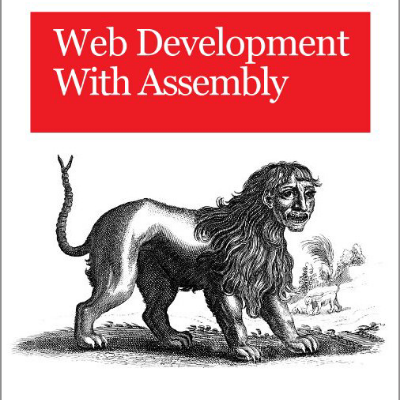- cross-posted to:
- [email protected]
- cross-posted to:
- [email protected]
Kinda weird that they’re calling it an OS, but ig they’re just trying to cater to the windows audience
I’d just like to interject for a moment. What you’re referring to as Linux is in fact KDE/Linux, or as I’ve recently taken to calling it, KDE plus Linux.
I’d just like to interject for a moment. What you’re refering to as Windows, is in fact, Adware/NT, or as I’ve recently taken to calling it, Adware plus NT.
Adware + New Technology (from the 1990s)
deleted by creator

It’s time to write free software and defend rapists, and I’m all out of programming talent
Haha (but in all seriousness, his lack of understanding of the issue was embarrassing, even if he did apologise afterwards; it’s like Ballmer: everyone remembers him saying “Linux is a cancer”, yet nobody remembers him apologising, when he saw Satya Nadella found a way to make money off Linux, rather than look for ways to tear it down as competition). In both cases these men saw that a change in their stance would allow them to achieve their goals (of promoting free software, and making money, respectively) much more easily).
So here you can see me behaving like the average Linux user, hating on Microsoft and being elitist about my distro, and I’m done ranting about M$.
I use Arch BTW.
I don’t :(
deleted by creator
You can’t say that without explaining the reference. How can they be one of the lucky 10 000 when they still don’t get it?
deleted by creator
deleted by creator
What if you’re running KDE stuff on *BSD. Or on Windows, for that matter…
(eg: I use Kate on windows as my primary text editor on my work computer…)
KDE neon is what they’re selling
Selling as in advertising, I might add. Neon is free
Neon is more of a testbed than a proper distro (they don’t actually even use that word).
Is this “the KDE distro”?
Nope. KDE believes it is important to work with many distributions, as each brings unique value and expertise for their respective users. This is one project out of hundreds from KDE.
It’s a proper distro, that’s just saying it’s not THE official one
Uhm
Is it a distro?
Not quite, it’s a package archive with the latest KDE software on top of a stable base. While we have installable images, unlike full Linux distributions we’re only interested in KDE software.
Oh ok
Which is…still not an OS. It’s a distribution. Specifically, it’s a fork of Ubuntu. To reiterate what the OP was saying, they’re catering to the Windows audience, who understand the concept of a “new Windows version,” but who wouldn’t understand the concept of a distribution.
What exactly is an OS to you? All distros are operating systems because they ship all the tools and utilities need for the system to function (on top of a package manager).
The fact that the KDE devs didn’t write that code themselves doesn’t disqualify it from being an OS.
An OS is the interface layer between hardware and software. It’s the first code that runs after the boot loader, and it exposes an API for syscalls that allow user processes to allocate typically restricted resources, while also tracking and maintaining those allocated resources, doing process scheduling, and a bunch of other critical tasks.
All distros are operating systems because they ship all the tools and utilities need for the system to function
All distros contain operating systems (or, more accurately, kernels), or, rather, are built on top of them. A distribution is a collection of curated software, along with an init system and, for linux, package manager, and, frequently, a particular desktop environment. These pieces of software are, on some level, superfluous. You can have an OS without them. They don’t comprise the OS as a distinct conceptual layer of a computer system, of which there is the hardware, operating system, application, and user layers. The operating system is just Linux - because that is the interface layer between the hardware and software.
Saying “all distros are operating systems” is like saying “all cars are engines.” It’s just wrong. And I don’t care what wikipedia has to say about it.
It’s actually not even a distro, according to their own description at least
Is it a distro?
Not quite, it’s a package archive with the latest KDE software on top of a stable base. While we have installable images, unlike full Linux distributions we’re only interested in KDE software.
Sounds like a distribution that they don’t want to call a linux distribution.
They probably feel like the name distribution means more than just slapping a DE on it and basically a PPA. Then again, haven’t stopped loads of distros from doing that hah.
Could be another way to discourage people using it as a beginner distro or something.
I mean, there’s over a thousand linux distributions already and it feels like they just don’t want it to be another drop of water in the ocean.
I feel like they intended to mention KDE neon (which is the official KDE distro).
“But can Linux install things via a single .exe file? HAHAH EAT IT NERD!”
- 10’ish years ago past me, before discovering the magical wonders of the package manager
I found since people are used to app stores, I’ve had a much easier time convincing people to try out Linux. My mom even said that she always wished her windows PC had a proper app store.
I think it’s still important to explain the key difference between an “app store” and a package repository: the latter isn’t a “store” because everything is free.
True but it helps get the concept across so much.
Thst might change with Flathub’s ambitions to become an actual app store though
Did I just heard that right? Flathub wants to charge for software?
Yes. Flathub wants to become a platform where people and companies can sell their software
Well hey, as long as these participating devs maintain that their software remains FOSS, I’d pay up. They do a lot of good work, can’t do it all for free.
But Windows does have an app store, and has for ages now.
Yeah but it’s awful, and can only install UWP apps which are just plain bad
When is the last time you’ve used it? Microsoft opened it up and now you can find all types of non UWP apps in it.
Still ass though.
Just install/update App Installer and use winget.
Most of them are, but there are non UWP apps on there too.
Sure, but pretty much every common application most people use is available, which is fine for the majority of people such as OPs mom.
deleted by creator
deleted by creator
What crap machine are you running? I can open the store on my Surface 3 I’ve had for nearly a decade.
I don’t think getting instagram, or photoshop off the microsoft store is giving anyone a virus. And I’ve never gotten a virus from it in the few times I’ve used it.
deleted by creator
It’s not that good. It’s ok (especially now that it’s been unshackled from the hell of UWP), but it’s not as good as most Linux options.
For someone like OPs mom it would be more than good enough is my point. She’s saying she wished something existed that does indeed exist.
Windows has also had a variety of freeware since before there was never an app store
Of course, and much of it is on the app store now (which I rarely use myself), but for someone like OPs mom who just wants an easy app store, well there is one.
With app images it’s easier than installing. Although the chmod step will deter the typical windows user
What chmod step?
When I clicked on new app image, the OS told me, that program /name of app/ will be launched, I clicked “Continue” and it runs! No meddling with “chmod” or anything like that.
Same, I love AppImages for that. I just wish they also had way to contain configurations instead of putting it on the system. That would make it even more portable.
ELF and .sh files need to be set executable,
chmod +x file, before they can be run, unless your DE does that for youDunno about appimages
KDE does exactly like that
(I am using MX Linux)At least for Ubuntu, you do need to set the permissions of the AppImage before it’ll launch.
I still haven’t figured out how to make .desktop files work yet.
With file managers, for example in thunar, you can select Properties -> Permissions -> Allow this file to run as a program
also for non-KDE, non-Gnome systems, there’s appimaged – requires a little more setup, but handles the set executable, automates the AppImage integration (
.desktopfiles and menus), keeps a watch on specific folders for new AppImages, and provides a way to check for updatesI’m saving this. I don’t use any appimages (except a cracked Minecraft bedrock launcher but we dont talk about that one), but I’m still going to save this.
I installed Linux a few weeks ago and it was on Tuesday I wanted to add some programs I had installed (it was mGBA and melonDS) to my steam launcher, I went through the hassle of making a . desktop file for both of them (I was dumb and used a Ubuntu based distro, so it installed as a snap, which sucks hard on a hdd) and then it wouldn’t launch, I searched up again (I was using chatGPT for all of this, I asked it a lot how to do stuff, it’s like this was it’s purpose beacuse it always worked first try), did the chmod x+ command and then I was done
Just to see it not launch :/
How do you actually install an AppImage? I figured out how to use them, but not how to install them.
You don’t install them. You just give them the permission to run and then run them.
There is no install needed, you can just edit permissions and make the file executable and then when you open it or click it the app runs.
What won’t be created by default is an application menu to run it from whatever desktop environment you use. You can create those if you wish. You can create a launcher in the menu manually, or you can use a tool called AppImageLauncher to create these for you.
There’s a pretty good explanation here: https://askubuntu.com/questions/1311600/add-an-appimage-application-to-the-top-menu-bar
Not to mention Flatpaks.
I still am intimidated by the terminal as I’ve only had slight experience with CMD
Honestly, if all you’ve ever experienced in regards to terminals is windows CMD, then you really haven’t seen much. I mean that possitively. Actually, it will give you a far worse impression on what using a Linux / Unix terminal can be like (speaking as someone who spent what feel’s like years in terminals, of which the least amount in windows CMD).
I suggest to simply play around with a Linux terminal (e.g. install VirtualBox,.then use it to install e.g. Ubuntu, then follow some simple random “Linux terminal beginner tutorial” you can find online).
The Windows Terminal is absolute Garbage. I tried to use it for some very simple stuff and it was such a trash experience. It just feels wrong.
Don’t worry about the terminal until or unless you have something to do that needs it, then follow a guide
Incidentally if a guide tells you to run a program in terminal, you can check what that program is supposed to do
- man command (eg. man mount) gives you the manual, if it has a manual
- command -h or --help gives you the command’s help page - pipe it through “less” if it’s more than a single screen eg: ls -h | less
Windows 11 takes your money, gives you ads, sells your information and ignores your bug reports and feature requests
KDE is free, ad-free and open to contribution
I think we have a clear winner here
But can it run proprietary software used in the industry? From Excel to Photoshop, if you are in a collaborative professional environment, you can’t run away from those, and don’t tell me you can use the alternatives in Linux, because no, you can’t. This is not linux fault, but it’s still an issue you can’t handwave.
I love linux, but you can’t expect people to adopt it just because it’s objectively better than windows.
Wine can run most of those, not all. You can still dual boot Windows if you need to (VMs are an option, but they aren’t always the best).
I mean, that’s what I do. Will I be able to convince my 60 yo colleague that had been using the same workflow for decades? No, not a chance.
Are you talking about for work or home usage? And do they have any specific proprietary application/hardware requirements?
Work use. The are hardware requirements (XRD machines, potentiostats, CNC machining) and software requirements (3D design). My workshop asks for files in Autodesk Inventor, if I send it in any other format, they just won’t fabricate my pieces, and I completely understand, who am I to change the workflow of a complete department just because I refuse to use Inventor (which is provided at work).
But you understand that’s a massive Ballache to deal with on top of your normal workload?
I haven’t tried running anything new, but the stuff I have run in wine has worked easily, without any tweaking
You just gotta make an effort. The one who are too lazy will never be free of Microsoft’s clutches. Which probably just means pretty much everyone will stick to windows.
That’s my point, I use linux as much as I can, but if 80% of your colleagues use Windows… You don’t have much choice.
It depends on your industry. I’m in an agile development team, working in AWS in Java. I’m not a dev, so my work is in spreadsheets, word processor documents, web utilities like Azure Dev Ops
All that is platform independent, though we have to work on the organisation’s computers, so we work in the office on windows PCs or from home on whatever, remoted into a windows machine or VM
The devs work in VMs which are variously windows or GNU/Linux depending on what the person’s previous project was.
Sounds like you need better colleagues.
I use linux 50% of my time, I’m not going to ditch my job so I can use it 100%, lol. What kind of advice is that for someone who wants to use linux.
If you want real change you have to change for real.
@desconectado @glibg10b Wine exists… And that’s all I have to say. There is a good installer in lutris for creative cloud that works pretty good if you own it. And if you have a NVIDIA graphics card, it works even better, almost like on windows. It’s not 1:1 but we’re getting close. For excel you have wine again or a great free alternative is WPS or softmaker if you want to buy it.
I wish Wine worked well enough to use Excel. We are not talking about adding up numbers in a cell. Once you include macros, or a reference manager in Word, Wine is not good enough. The same can be said about propietary software, like autocad, or software used to control equipment. Also, good luck convincing a regular user to get familiar with wine.
WPS is great for simple files. Again, not good enough for complex files, especially if it is a corporate collaboration environment. I have lost count on the amount of ppt files that didn’t display well when it used WPS.
Every other year I try all the alternatives you mention, hoping they got better, and I always come back to use a dual boot or a virtual machine, which is not a thing your regular user wants to do.
List of things to consider
- There are alternatives
- You can use wine
- You can run a windows VM and install it there
- Dual boot windows
- Microsoft has built a proprietary moat around their operating system. The reason why it’s hard to switch from Windows is by corporate design. A mix of early adoption, network effects, and just plain cold hard cash makes them dominate the operating system market. Of course it’s infeasible for your 60yo coworker to switch; but KDE presents an alternate reality, an opportunity, for people fed up with big tech’s bullshit. Yes, figure out how to run and use alternatives you fucking nut. Way to go disparaging countless volunteer hours spent on open source projects so that people like me can switch to linux.
Comments like these make me irrationally angry. Why complain about open source software and give bad PR? It’s open source; contribute.
Read my other replies. 1 and 2 don’t really work, the performance of using wine, or the alternatives, is just not there, if you do amateur work, maybe that’s fine, but for professional collaborative work, good luck using freecad instead of autocad.
Personally, I use 3 and 4, but you have to understand that the regular user is not going to go through that much hassle to set up a virtual machine.
There are enough web based office instances running for Linux to be functional in that regard.
Photoshop on the other hand…
Photopea is a solid replacement.
GIMP will be great once it no longer needs to dodge patents
Audio players work great now MP3 is out of patent (before that MP3 was really only available if you were willing to ignore the patent)
I love linux, but you can’t expect people to adopt it just because it’s objectively better than windows.
Excel o,O
Meh I had a dual boot machine ages ago. Still here collecting dust. Basically I only switched to use the Linux for down time, movies, and study, most day to day tasks from engineering software to anything I considered important enough that you do not want the results hacked or broken I would use Windows.
I think of modern machines kind of like a hammer. These days almost nobody actually remembers the guy who made the first hammer, or who discovered fire, but there’s a price tag for the bow, the paper and the hammer, not so much the making of the hammer, because the actual skill involved or required to learn about it has become challenged if not cheapened to the degree that there are now multiple paths to obtain or create a hammer, yet the benchmark quality of the hammer as well as the process for creation itself as a whole is now more of an authority than the actual original statue or monolith of “hammer man” himself.
This is why I think the many flavours of Ubuntu including the many esoteric Linux distros are still interesting but still lack the diversity of use and specialization. The fact that whole blockchains are built for XYZ while sitting around pumped then dumped to trading at cents with no use goes to show how cloud computing systems and lower level computing is still very disconnected and becoming further thrown aside to uphold ponzi schemes.
I’ll give you an example, more money is wasted on onlyfans per year than for people trying to use system XYZ for solving problem A, or curing cancer. Consider that to be one of the “good” reasons many men and women are so misogynistic, even without looking down on sex workers.
I… what? What does Ubuntu have to do with misogyny?
This post reminded me to take my meds.
Get a life and stop trying to diagnose people via any observable behaviour. One day you’ll understand child lol
Look. Everything is like a hammer, in terms of specialization. From Linux distros to gender roles, if you want to understand the world, just look at the hammer. We live in the Hammer Age. It is hammer time.
No but yes it’s a useful analogy
Because plot twists and funny 🤣 nobody cares
Not to mention free as in freedom.
Also free as in beer.
Sadly there’s no beer in it however
That’s probably for the better.
You can look up beer recipes and buy equipment and ingredients from it though. And use web based or spreadsheet calculators on it to do beer related calculations
That beer is also not free, but assuming you make beer for a long time the price per pint (half litre to split the difference between UK and US pints) tends toward about 20c (though highly hopped beers like hazy pale ale can get towards a dollar a pint) which is pretty cheap
But not free as in Murica.
You could get Ubuntu in a free like America style
But in America, Freedom isn’t free.
Buck’o’five.
Canonical will sell you an Ubuntu
And anytime you mention that anywhere when somebody is being fucked again by windows, people find you annoying
But can it play Starfield with an Nvidia GPU? I originally had popos on my PC until Starfield came out, I had to switch to Windows to play.
In a nutshell; it works with a lot of tweaks.
I mean Starfield was just terrible optimized for Nvidia at launch and still isn’t ideal no matter what OS you use.
I play it on max settings with no problems on windows
Linux is the modern OS and windows is just a bunch of old shitty technology in a trench suit.
This is kinda how I feel about Windows these days. It’s interface, directory structure, shudder the registry, user specific apps (from MS Store or Winget), buttons being inserted into the menu bars on some apps, but not others, button sizes being different sizes, some parts still using the Metro interface. The whole thing either needs a re-write, or should be dropped and something new to replace it. Don’t even get me started on things like the eventvwr hanging for 20 seconds after it opens, event tracer API, their in-house abandonment of powershell modules once powershell was open sourced, Windows containers being a disaster, etc.
The problem is that so much critical infrastructure around the world relies on ancient Windows software. I’m pretty sure their backwards compatibility is one of the reasons there’s so much inconsistency in Windows, and every iteration seems to just add more bloat on top.
They hired the man behind systemd (controversial, I know, but he does have a vision). I hope they listen to him and/or he starts directing how they should do things from the ground-up.
I hope they listen to him and/or he starts directing how they should do things from the ground-up.
I hate Windows and would love to see ruined too.
There was a TCP/IP bug that shared it’s exploit on versions of windows from windows for workgroups 3.11 (which you ran from the DOS prompt by typing ‘win’) through to windows 7 (which was the new hotness at the time)
That’s a bug conserved from the very first Microsoft implementation of TCP/IP through to the state of the art at the time
People were surprised at the time that it wasn’t a windows NT bug
That’s surprising, as I think the first Windows TCP/IP stack was ported over from BSD by Spider Systems (pretty sure that’s why it still has things like “/etc/hosts” - albeit under System32). Wonder if the bug was in BSD and never backported (cross ported?).
Yeah, but that old technology is what still lets me run a 13 year old version of Adobe creative suite. If that ever changes I will have to learn something new!
We will perhaps never beat adobe but nowadays there are some amazing tools!
… Which are developed for windows as well. Haha.
deleted by creator
I’ve been a Linux user for a decade and a half now, but still use Windows on my corporate laptops. Honestly, it’s baffling how Microsoft seem to consistently manage to miss the mark with the UI design. There’s lots to be said about the underlying internals of Windows vs Linux, performance, kernel design etc., but even at the shallow, end user, “is this thing pleasant to use” stakes, they just never manage to get it right.
Windows 7 was…fine. It was largely inoffensive from a shell point of view, although things about how config and settings were handled were still pretty screwy. But Windows 8 was an absolutely insane approach to UI design, Windows 10 spent an awful lot of energy just trying to de-awful it without throwing the whole thing out, and Windows 11 is missing basic UI features that even Windows 7 had.
When you look at their main commercial competition (Mac and Chromebook) or the big names in Linux (GNOME, KDE, plenty of others besides), they stand out as a company that simply can’t get it right, despite having more resources to throw at it than the rest of them put together.
To me it’s absurd how Microsoft gets beaten by a free desktop environment when windows is like their main product. They have billions of dollars. How do they manage to not do better?
windows is like their main product
TBF it isn’t really - only about 12% of their revenue. It’s more of a means to lock people into their other products.
Well, that’s the thing, it’s the core part of their entire business. The glue that sticks everything together. Or at least used to be until Azure.
Because they dont have to.
deleted by creator
What drives me crazy is how they can’t update all their configuration interface to the same standard, if you go deep enough you still fine things that are unchanged since Windows 98
Yep. Drill down one level in a few control panel items and you’re back in win xp.
that the modern Settings still falls back on Control Panel most of the time
I can understand wanting to replace Control Panel but all they ended up doing was creating a Windows Shell frontend
Needs more system settings, there’s only three.
It seems like a big company’s problem. They have a well-paid design\marketing department that can do whatever they want to create the best-selling interface for the new version of Windows, but before it’s released, no one tested it yet for anything but bugs, and who’d argue with a flock of top designers anyway? Add here the board of directors who are here to sell them ideas and who won’t use it either – I’m sure they applauded to the idea of unifying mobile and desktop experience with WinPhone&Win8, but especially Tablet-Laptop transformers they saw as the future. It sounds great on the paper, right? At that time it could’ve even sounded obvious for their business. And so it happened like it did.
Linux counters it by constant feedback and competition between easily switchable DEs, users being prepared even to jump distros; Apple has a fetish for style and experience (that’s a half of their pricetag), they build their business model about looking and feel nice, so you’d build an ecosystem of their products, you can’t even see error windows here and their garden is gated af; and ChromeOS\Android aren’t shy of looking what others do (like iPhone’s design findings) and conservatively taking what works, also having tons of vendor-created restyles\forks on their own platform as a testing ground for new ideas to make them then a standard. MS lack all of it, and their creative process is guided by external interests and ideals, it’s just an afterthought. And as they have their stable market share, they probably won’t even care. It took whole internet’s screams to return their traditional start menu in win8.1, then w10.
That’d probably stay the same until their new CEO would happen to be an art college graduate - like the current one pushed for accessebility and building special controllers because she has a child with a disability. A top-down signal. I won’t bet on it anytime soon.
The fact that Windows 11 has removed the ability to move the taskbar and has no intention of adding it back is just baffling to me. It’s a small thing but so jarring every time I try to use it that I’ve barely used my desktop in the last few months.
I’ve noticed a trend in modern design where designers will put out garbage to ‘keep people on their seats’ waiting for it to be fixed.
I’ve been on Linux for ages and ages… back when I had to order CDs for new copies of Ubuntu.
Kde is the first desktop experience that I feel is the gold standard.
Every iteration of Linux I’ve used, solus, fedora, Ubuntu, Manjaro the DE I use is KDE.
I’m not sure why… but it makes sense to me and is my gold standard experience.
You can make KDE do pretty much whatever you want
Haha, I remember buying Mandrake Linux CDs… I’m a FreeBSD user these days (for the past 20-odd years) but still run KDE. Plus they’re still trying to remain fairly *nix agnostic which is nice.
Removed by mod
Oh shit, I remember LiteStep and spending hours and hours to just fiddle with how my desktop looked. I personally felt Windows 2000 was the pinnacle of MS OSs (except so many games etc. wouldn’t run because rightly the OS reported it was Windows NT and a lot of games shat themselves at that)
What is “ricing”? Sounds like you might be talking about theming?
Yeah, ricing is slang for the r/unixporn kind of themeing. It comes from car culture, where RICE stands for “race-inspired cosmetic enhancement”
Fwiw rice is a backronym, it originally comes from just “rice burners” which were the kind of cars & motorcycles that got “cosmetically enhanced”
it originally comes from just “rice burners”
The term is often defined as offensive or racist stereotyping.
Yikes, I think I’ll just stick to “themeing”
Ricing is usually used for extreme, often gaudy theming and personalization, with emphasis on looks rather than real usability
Idk if I would say it’s looks > usability, and it’s certainly not gaudy… There are theming styles that are much more unusable and gaudy than the “riced” look.
It’s an aesthetic that idealizes a kind of barebones utility, and while it often will lean towards the look over the usability, the look itself is like a “beautiful utilitarian” - minimalistic, uncluttered, etc.
I set my KDE up to look as much like Windows 7 as possible.
I think that was peak desktop design before designers started changing shit just to stay relevant.
Plasma is not a system, but I see how they didnt want to confuse people here
It is a desktop environment system.
But no operating system
Microsoft will probably never truly catch up with KDE
Plasma 6 is approaching fast
So is Windows 12… /s
Approaching at $9.99/month.
Is this sarcasm? I’m out of the loop.
Rumors that win12 would be a subscription rather than a one time buy
In the newest windows, it is even possible to hover the volume icon and change it with the mouse wheel!!!
Does clicking on it open the mixer, or still the useless menu which should be accessible with a right click instead?
Menu
KDE had that pretty much since the invention of the mouse wheel.
I have the same functionality on my waybar
Still not going back to Windows!
LOL!
Wait, they didn’t have that before? Heck, even my sway install with Waybar has this.
But you still need to get at the audio settings to tell it that it should use your microphone for a microphone, not the USB camera
KDE is the best desktop environment.
To be fair, forcing a bunch of software on the machine users own was never a good move, and in my opinion, not a new normal.
It was a good move when people had no idea what they were doing and needed defaults to get started.
You mean the defaults that were against anti trust laws?
not a kde user but huge respect to them
It’s not my primary driver, but I would gladly choose KDE over Windows.
I came back to KDE after a long absence because I never liked it back in the day (I found it ugly and bloated). I was really surprised by how good it has become. It’s now my favourite desktop environment on Linux, and I’m looking forward to version 6. So to any other oldies still avoiding KDE because of how it used to be, it’s worth another look.
I second your experience. It was not so impressive back then and 2indo2s was much nicer, but not anymore. I’m feeling it, this year Linux will be on top!
Edit: I tried to write Windows 🤷♂️
Here I am thinking there’s some obscure Linux project using a name that’s somehow a sequel to Windows, like a Windows 2, but also a play on the 2__4me meme.
Third. KDE is really amazing now.
Oh, this is good news for me. I remember trying KDE years ago and feeling that it was just way too heavy. My goto is usually Cinnamon, but the lack of Wayland support has made me hesitant to go all in with out on my gaming PC. Def gonna give KDE a try, thanks!
Cinnamon was where I had ended up too. So now I have a couple of Linux Mint/Cinnamon machines and a Tumbleweed/KDE machine. It surprised me that I like KDE more.
Fully based
What’s the current reliable KDE Distro? I’ve been rolling with Kububtu for a while now, but Ubuntu’s Snap mandate has been getting annoying.
I have been enjoying OpenSUSE Tumbleweed. It’s a rolling distro unlike the Ubuntu and Debian derivatives, but the updates hardly ever cause problems and it’s very easy to roll them back if they do. It also gives you a choice between X11 and Wayland, and Wayland is working well for me on Intel graphics.
I jumped into Tumbleweed recently and have really been liking it. Last time I used Linux with a desktop environment I was using Gnome and KDE was a lot unglier. Things have definitely changed.
Tumbleweed is pretty much the “official” kde distro
Not KDE Neon?
KDE Neon gets the latest package updates regarding KDE first but it is not official in any sense, as listed on their website. In fact, Neon is just a package archive built on top of Ubuntu that offers more up to date KDE stuff.
I have used the distro as a daily driver in the past. It uses it’s own pkgcon package management system.
I would recommend the KDE spin of Fedora.
Second but I use Nobara with KDE.
Second. Up-to-date packages and stable at the same time.
Fedora KDE Spin works pretty well
I can confirm. I’ve been running it on my M1 MacBook Pro and it’s quite nice.
deleted by creator
Natively. Only major blocker for me using it more often now is speaker support, which is coming soon enough (the M1 Air already has it).
If you want something Ubuntu-based I’d recommend KDE Neon, last time I tried it, it was great. I don’t think it has snaps since it’s made by KDE.
Debian or MX.
Most likely the best distro for KDE is KDE neon, but that doesn’t mean that much.
I use it on Debian testing and am very satisfied with it, KDE has never been so stable.
I’m using Kubuntu as my main OS and it has been very stable for me. You can remove snapd and install the deb Firefox repository. You should look up tutorials on how to do it, I did it and nothing broke
I use it in Garuda. No complains.
I for one hope to move from kubuntu to debian with KDE, I assume that won’t have snap shit or systemd shit, but I might be painfully mistaken right there, I haven’t checked it out yet.
Debian does use systemd, but what’s so bad about it? I’m just curious, I’m using Arch with KDE, and that also uses systemd. Never had any issues with it. Debian doesn’t use snap by default though.
MX does not use systemd by default
Fedoras flavor with KDE. Fedora never caused an issue for me.
Endeavour switched to KDE as their main DE
Manjaro is pretty good.













































